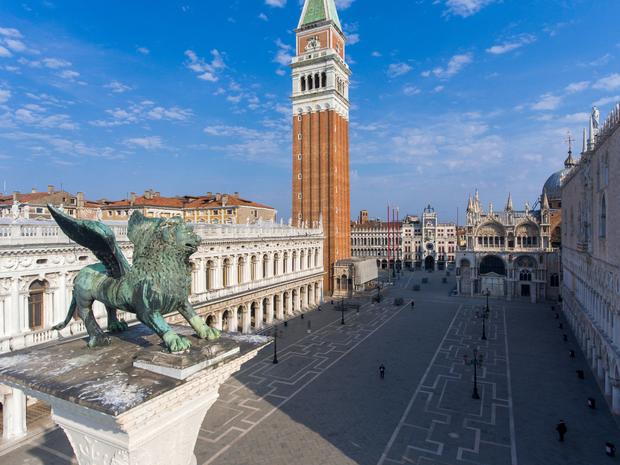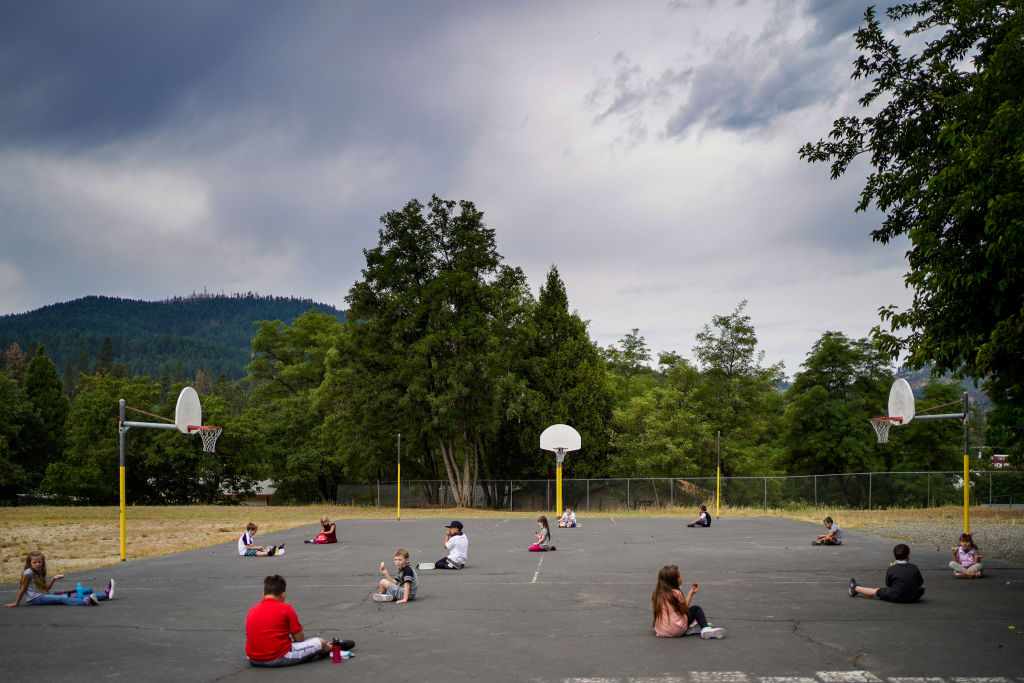Nature is flourishing in Venice as the coronavirus pandemic keeps tourists away
Venice, Italy — Venice has suffered during the coronavirus pandemic without its usual influx of tourists. But it has enjoyed an unintended benefit: Nature is flourishing.
CBS News' Chris Livesay reports that, perhaps more than any other city, Venice has gone from one extreme to the other under lockdown. The Rialto Bridge, the Grand Canal and even St. Mark's Square have been deserted as people around the world have stayed home, and as Italy has battled its COVID-19 outbreak.
Ecologist Marco Sigovini says the streets and canals usually awash with tourists are so still, that nature has moved in to fill the void. There are hardly any boats to churn up cloudy sediment and scare away marine life, so jellyfish and schools of fish are swimming around in the iconic canals.
The European Space Agency has snapped satellite images – taken a year apart in April – that show the dramatic reduction in boat traffic:
Cruise ships are conspicuously absent, too. Last year, more than 600 passed through. With their titanic size, environmental scientist Jane Da Mosto said the vessels splash corrosive wakes onto the fragile foundations of Venice's harbor. Sometimes the damage can be much faster: Last year, four people were injured when a cruise liner slammed into a Venetian dock.
But today, Da Mosto says "it's more like a lake."
"I just imagine that all the buildings in Venice are kind of singing to each other," she said. "They must be so relieved not to be bashed around."
Without the ships' billowing exhaust, her team has also measured a marked improvement in air quality.
It's not without a cost, however. Empty streets and empty canals also mean empty pockets. Without tourists, COVID-19 has left the local economy gasping for air.
One fishmonger said he'd go bankrupt selling to Venetians alone. There are only 50,000 of them, compared to 30 million tourists who typically come every year.
"We're not dying of coronavirus," Venice Mayor Luigi Brugnaro told business leaders at a demonstration. "We're dying of hunger."
Striking a delicate balance between the ecology and the economy is going to determine the future of Venice. For now, it seems there's a tension between public health and public wealth in the city – and around the world.
Italy partially eased lockdown measures last week, only to see a big increase in confirmed COVID-19 cases in the country's hardest-hit region, The Associated Press reports. The country has seen more than 220,000 confirmed cases, and more than 30,000 people have died in Italy due to the virus, according to a tally from Johns Hopkins University.





